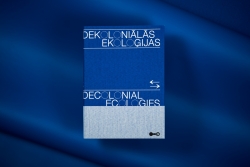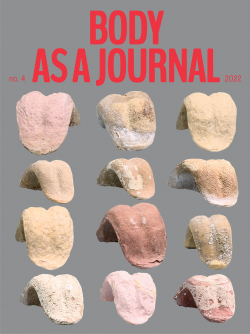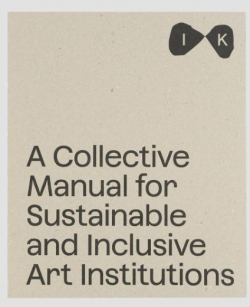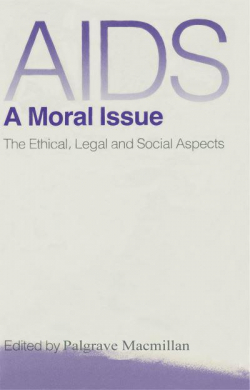Decolonial Ecologies: Understanding the Postcolonial after Socialism

Buy online ($)
Type
Book
Authors
Astahovska ( Ieva Astahovska )
ISBN 13
9789934922800
Category
menai / arts
[ Browse Items ]
Publication Year
2024
Publisher
Pages
312
Description
The Latvian Centre for Contemporary Art (LCCA) has published a collection of articles “Decolonial Ecologies”, which brings together artistic explorations on critical issues of ecology and socio-political change in the Baltic region today – both by creating dialogues between locally and globally relevant environmental contexts and by encouraging an understanding of the role of the past in contemporary political and environmental crises. The collection uniquely combines creative practices and ecocritical ideas, aiming to develop new approaches to the shared ecosystem of people and nature.
The collection of articles is an extension of the LCCA’s exhibition “Decolonial Ecologies: Understanding the Postcolonial after Socialism” (2022) creative research. “Each of the contributions in this collection asks principal questions that intersect the environmental context of the past, present and future, uncovering intertwinings and intersections, and forges new connections where there seems to be nothing in common. The decolonial perspectives involved in the artists’ research not only revisit the region’s socialist past and its footprints, experiences of change and liberation through environmental narratives, but also decolonise art itself, emphasising the impossibility of separating aesthetic, ethical, social, material and political aspects,” – Ieva Astahovska, the compiler and editor of the publication, as well as the curator of the exhibition, comments.
The collection is structured in two parts – “Decolonial” and “Ecologies”. In the first section, “Decolonial”, the authors focus on the relationship between humans and the environment, highlighting themes such as (post)Soviet legacies, the meaning and experience of place, memory, landscapes affected by technology and industry, the cultural meanings and social practices of ecological issues, and alternative strategies for coping with the environmental crisis and the challenges posed by climate change. The second section of the collection, “Ecologies”, seeks to answer the questions: how can revisiting the past be helpful in understanding today’s political and ecological crises and influence efforts to address them? How can the ideas of alternative ecologies develop new approaches to environmental solutions, renewable energy development, biodiversity, and the human-nature shared ecosystem today and in the future?
The authors of the articles are Ieva Astahovska, Linda Boļšakova, Maija Demitere, Vika Eksta and Anna Griķe, Inga Erdmane, Quinsy Gario, Maria Kapajeva, Diana Lelonek, Aurelija Maknytė, Haralds Matulis, Francisco Martínez, Olia Mykhailiuk, Līga Spunde, Rasa Šmite and Raitis Šmits. The book was designed by Alexey Murashko.
The collection of articles is an extension of the LCCA’s exhibition “Decolonial Ecologies: Understanding the Postcolonial after Socialism” (2022) creative research. “Each of the contributions in this collection asks principal questions that intersect the environmental context of the past, present and future, uncovering intertwinings and intersections, and forges new connections where there seems to be nothing in common. The decolonial perspectives involved in the artists’ research not only revisit the region’s socialist past and its footprints, experiences of change and liberation through environmental narratives, but also decolonise art itself, emphasising the impossibility of separating aesthetic, ethical, social, material and political aspects,” – Ieva Astahovska, the compiler and editor of the publication, as well as the curator of the exhibition, comments.
The collection is structured in two parts – “Decolonial” and “Ecologies”. In the first section, “Decolonial”, the authors focus on the relationship between humans and the environment, highlighting themes such as (post)Soviet legacies, the meaning and experience of place, memory, landscapes affected by technology and industry, the cultural meanings and social practices of ecological issues, and alternative strategies for coping with the environmental crisis and the challenges posed by climate change. The second section of the collection, “Ecologies”, seeks to answer the questions: how can revisiting the past be helpful in understanding today’s political and ecological crises and influence efforts to address them? How can the ideas of alternative ecologies develop new approaches to environmental solutions, renewable energy development, biodiversity, and the human-nature shared ecosystem today and in the future?
The authors of the articles are Ieva Astahovska, Linda Boļšakova, Maija Demitere, Vika Eksta and Anna Griķe, Inga Erdmane, Quinsy Gario, Maria Kapajeva, Diana Lelonek, Aurelija Maknytė, Haralds Matulis, Francisco Martínez, Olia Mykhailiuk, Līga Spunde, Rasa Šmite and Raitis Šmits. The book was designed by Alexey Murashko.
Number of Copies
1
| Library | Accession No | Call No | Copy No | Edition | Location | Availability |
|---|---|---|---|---|---|---|
| Main | 304 | 1 | Yes |




